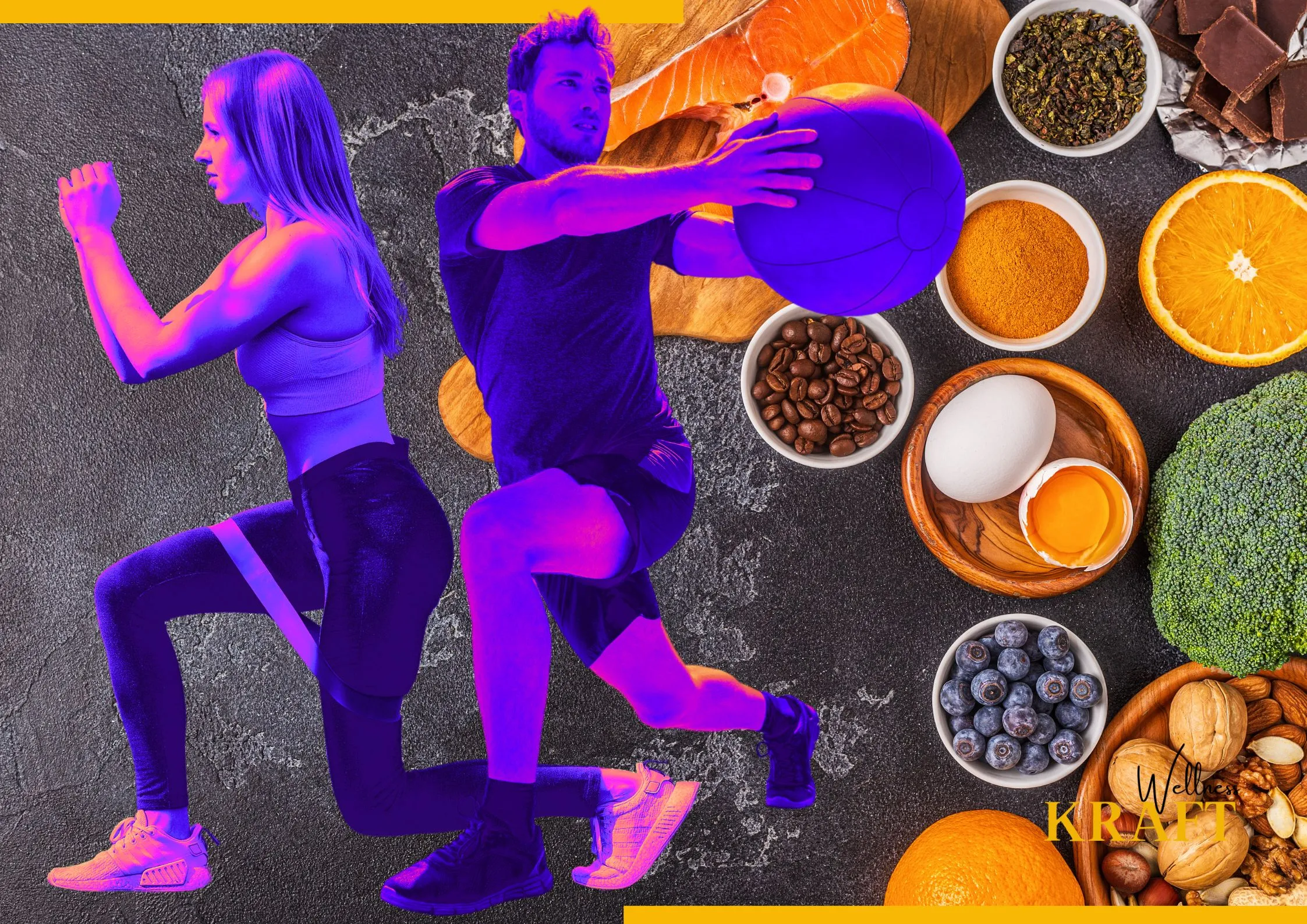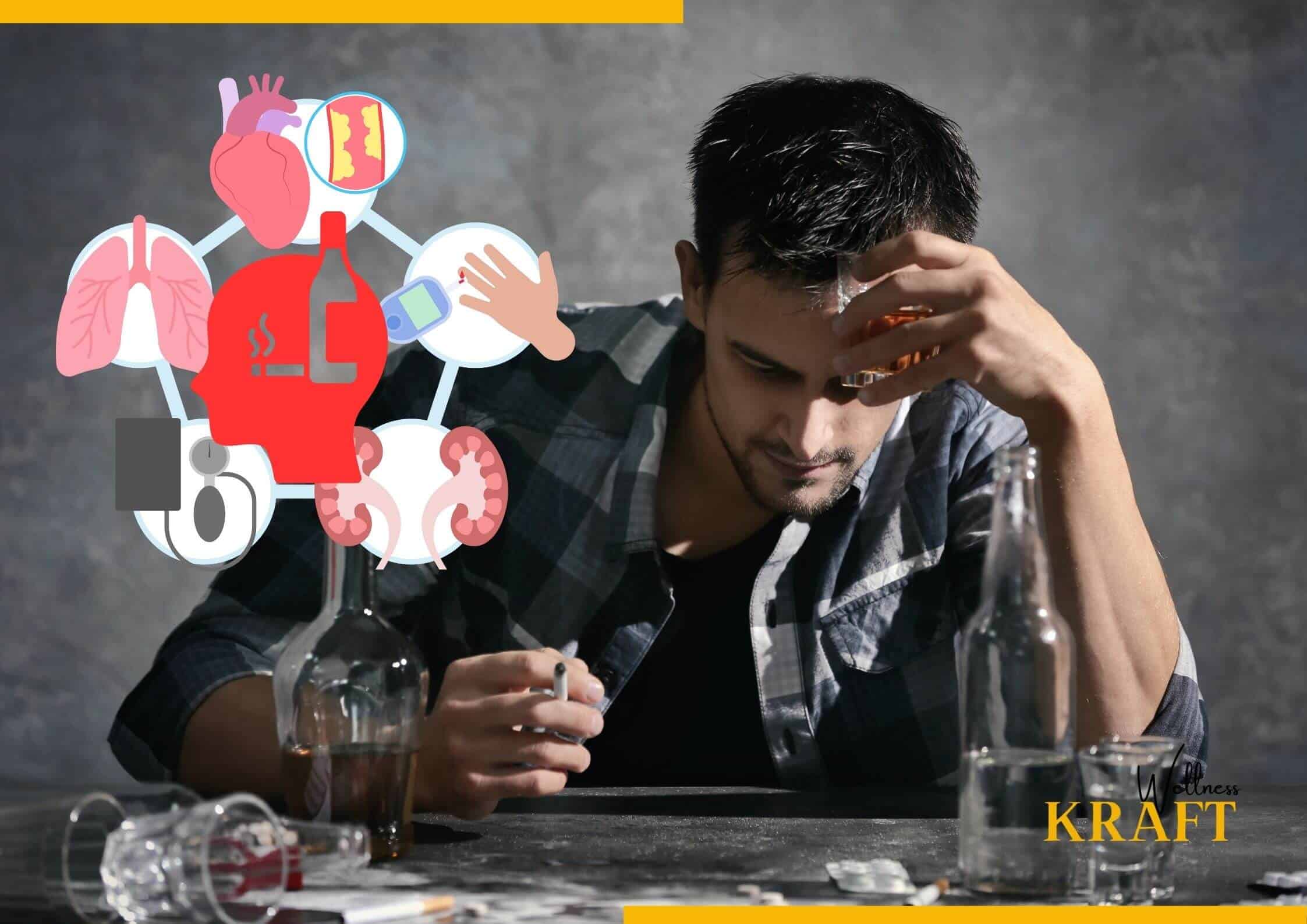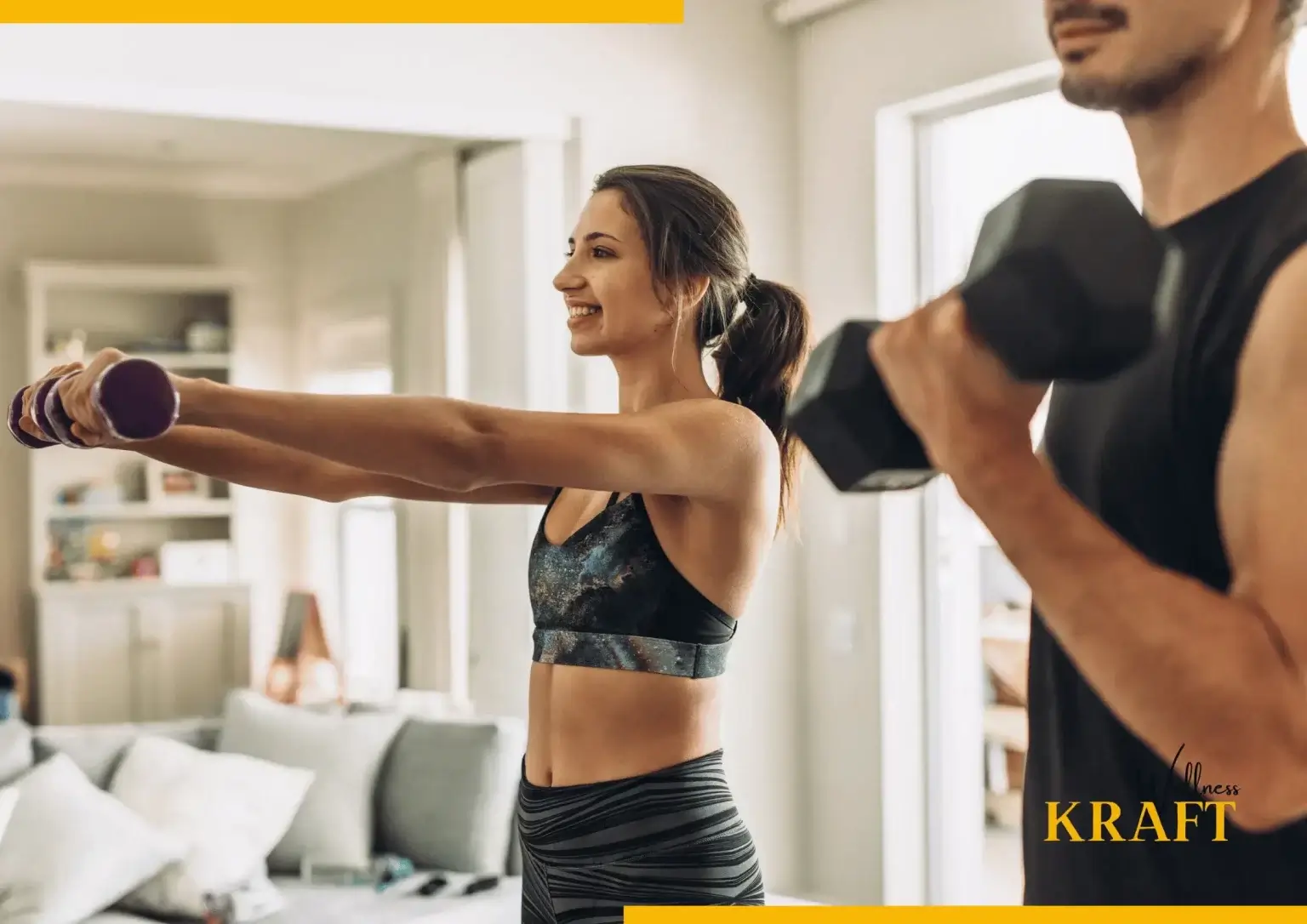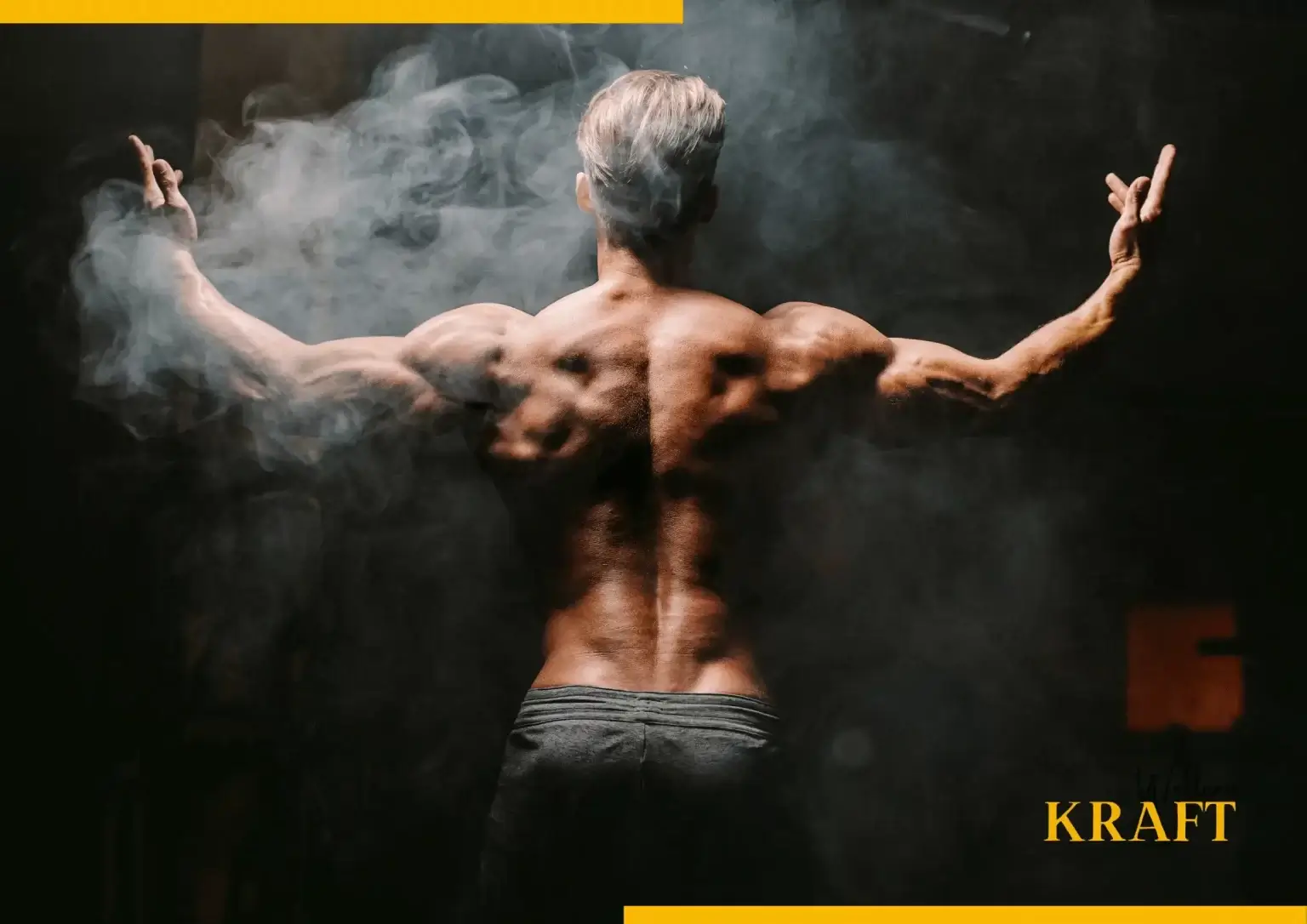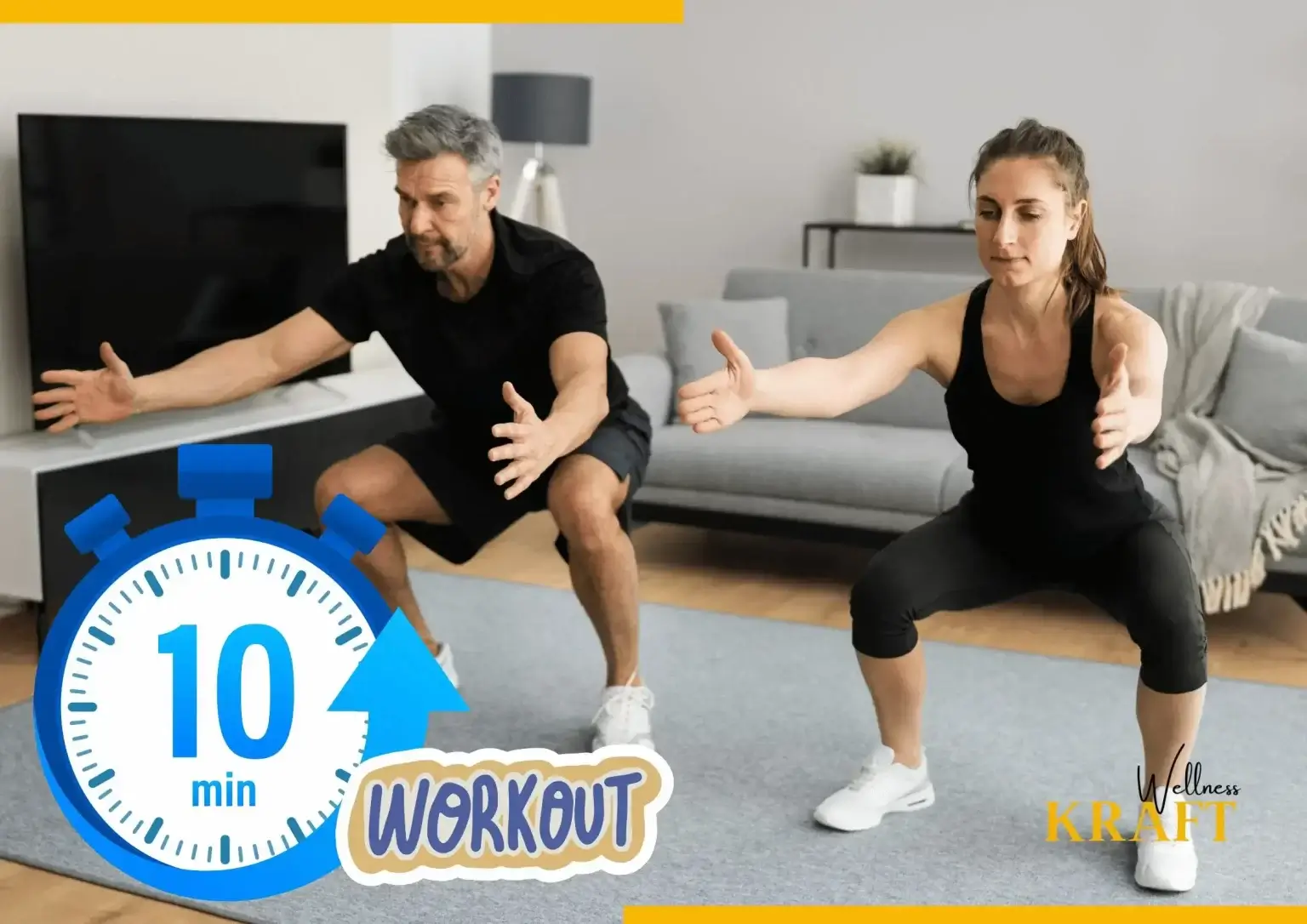“Exercise is a triumph of what your body can do, not guilt for what you ate.” – Wellness Kraft
Introduction
When you work out, the kind and quality of food you eat can make a big difference in how well you do and what kind of effects you get. The right food can give you the energy, nutrients, and fuel you need to get through your workout, while the wrong food can make you feel sluggish, tired, and uninspired.
In this article, we’ll talk about the best food to eat before, during, and after a workout to give you the most energy. We’ll take a better look at the macronutrients, such as carbohydrates, proteins, and fats, that are important for making energy, and give examples of the best food to get each one from. We’ll also talk about how important time and staying hydrated are for energy, and we’ll look at supplements that can help you do better.
Whether you’re an experienced athlete or just starting out, the information in this piece will help you understand the role of food in making energy and help you make smart decisions about what to eat before, during, and after a workout. So let’s dive in and find out the best things to eat before, during, and after a workout.
Table of Contents
Understanding How Food Affects Workout Energy
Food is the energy source for the body, and the same is true for exercise. The type of food you eat before, during, and after exercise, and when you eat it, can have a big effect on how well you do and how quickly you heal.
During exercise, carbs are the body’s main source of energy. They are broken down into glucose and stored as glycogen in the muscles and liver. During exercise, the body uses glycogen to power muscle contractions. To keep your energy up, you need to eat enough carbs. Proteins are broken down into amino acids, which are then used to fix and build muscle tissue, which is especially important for high-intensity workouts. This is how energy is made.
Fats also help make energy, especially during low-intensity exercise that lasts for a long time, because they last longer as a source of energy than carbs. But before fats can be used as food, the body has to turn them into glucose, which takes longer and needs more oxygen. This makes fats less useful for high-intensity exercise.
For the most energy during workouts, it’s also important to eat at the right times. If you eat too close to a workout, your stomach might hurt, but if you eat too far ahead, you might feel hungry and low on energy. Finding the right mix and timing for your meals can help you make sure you have the energy you need to get through your workout.
In conclusion, if you want to get the most out of your workouts, you need to know how food affects energy output. By eating the right amount of carbohydrates, proteins, and fats at the right times, you can give your body the energy and nutrients it needs to perform and heal at its best.
What Macronutrients Are and How Important They Are for Workout Energy ?
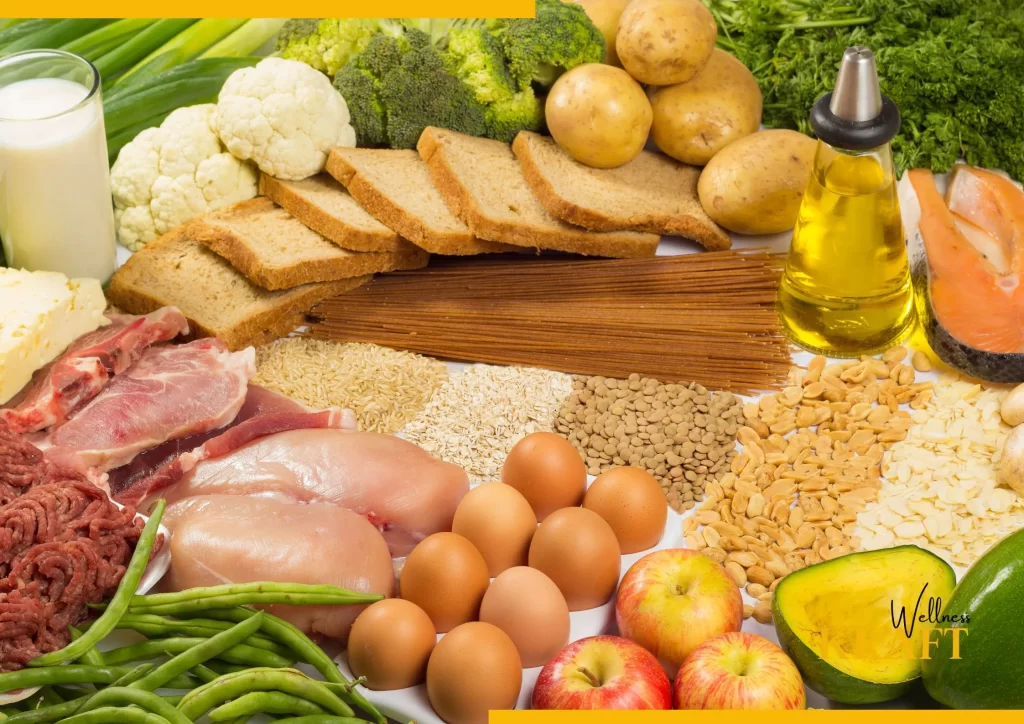
Carbohydrates, proteins, and fats are the three main types of food that give the body energy. During workouts, each of these macronutrients is very important for making energy.
Carbohydrates, which are broken down into glucose and kept as glycogen in the muscles and liver, are the body’s main source of energy. During exercise, the body uses glycogen to power muscle contractions. To keep your energy up, you need to eat enough carbs. Carbs can be found in whole grains, fruits, veggies, legumes, and whole grains.
Proteins are also important for making energy because they are broken down into amino acids, which are then used to build and fix muscle tissue. This is especially important for workouts that are hard on the muscles and require a lot of effort. Lean meats, fish, eggs, cheese, and plant-based food like beans, lentils, and tofu are all good sources of protein.
Fats also give you energy, especially when you’re working out at a low intensity for a long time, because they last longer than carbs. Fats, on the other hand, take longer to turn into energy and need more air, so they aren’t as good for high-intensity exercise. Nuts, seeds, avocados, olive oil, fatty fish, and avocados are all good sources of healthy fats.
For the most energy during workouts, you need the right mix of macronutrients. If you eat too much of one food and not enough of another, it can throw your body out of balance and make you perform less well than you could. Talking to a registered dietitian or sports nutritionist can help you find the right mix of macronutrients for your fitness goals and needs.
In the end, getting the right amount of carbs, proteins, and fats is important for getting the most energy out of your workouts. Each macronutrient is important for making energy and has its own perks and places to get it. You can reach your fitness goals and do better generally if you can find the right balance.
Healthy Calories for Energy
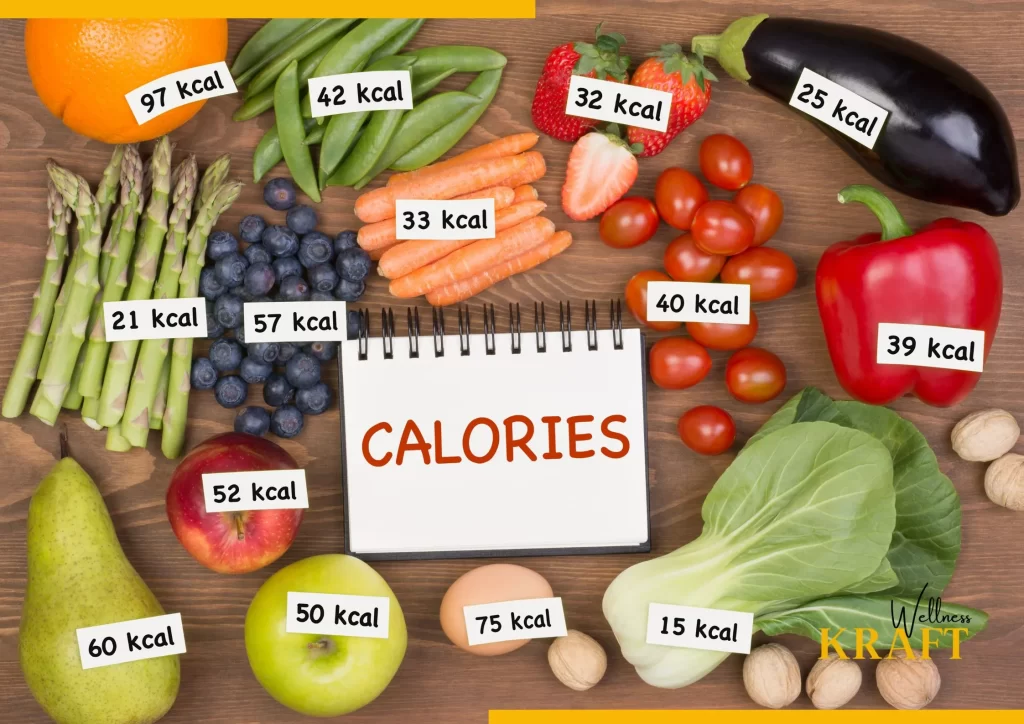
Carbohydrates are the body’s main source of energy, so they are an important food to eat before and during workouts. But not all carbohydrates are the same, and some are better than others at giving you energy that lasts while you work out.
Complex carbohydrates are a type of carbohydrate that are made up of long strings of glucose molecules. Because of this, they are harder to digest and give off energy more slowly. Whole grains like brown rice, quinoa, and whole wheat bread, as well as fruits and veggies, are examples of complex carbs.
Simple carbohydrates, on the other hand, are made up of shorter chains of glucose molecules and are quickly absorbed. This causes a quick rise in blood sugar and then a drop in energy. Simple carbohydrates include food and drinks with a lot of sugar, white bread, and prepared food.
Complex carbs eaten before a workout can help give you energy that lasts the whole time, while simple carbs can give you a quick boost of energy during long workouts. But it’s important to choose good sources of carbs, like whole grains and veggies, instead of processed and sugary snacks, which can cause blood sugar levels to change and make you feel tired.
Adding carbs to meals and snacks throughout the day can also help keep your energy up and give you fuel for your workouts. For instance, adding fruit to breakfast or whole grains to lunch can help give you energy that lasts all day.
Healthy Proteins for Energy
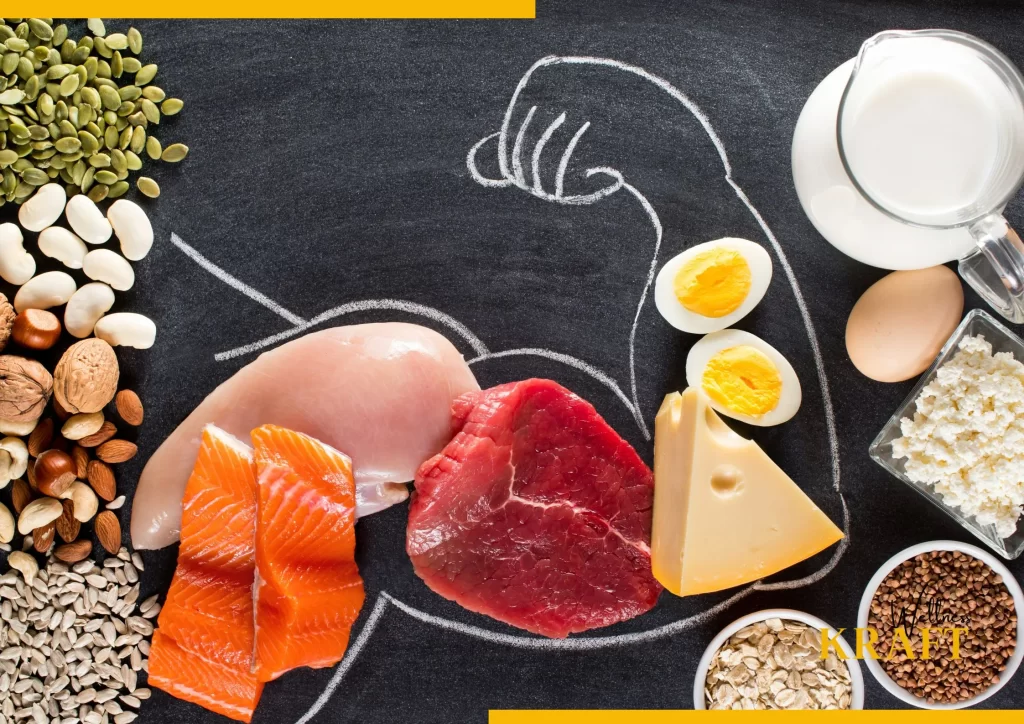
Protein is an important macronutrient that helps build and heal muscle tissue. It is also a good source of energy during workouts. Choosing good sources of protein can help you get more out of your workouts and improve your general athletic performance.
Lean food like chicken, turkey, and fish are great sources of protein because they are low in saturated fat and high in important nutrients like B vitamins and omega-3 fatty acids. Beans, lentils, and tofu, which are all plant-based sources of protein, are also great choices because they offer a wide range of important nutrients along with protein.
Whey protein is a type of protein that comes from milk. Athletes and people who like to stay in shape often take it as a supplement. It is easy to digest, which makes it a great choice for eating before and after a workout. Other protein products that can help fuel workouts include soy protein, casein protein, and pea protein.
It’s important to get protein from good sources and eat enough protein to meet your body’s needs. Depending on things like body weight, fitness goals, and the intensity of workouts, the suggested daily amount of protein is between 0.8 and 1 grams per pound of body weight.
Adding protein to meals and snacks throughout the day can help keep your energy up and give you the fuel you need for your workouts. For example, adding chicken or tofu to a salad or drinking a protein shake after a workout can help muscles heal and give you energy that lasts.
Healthy Fats for Energy
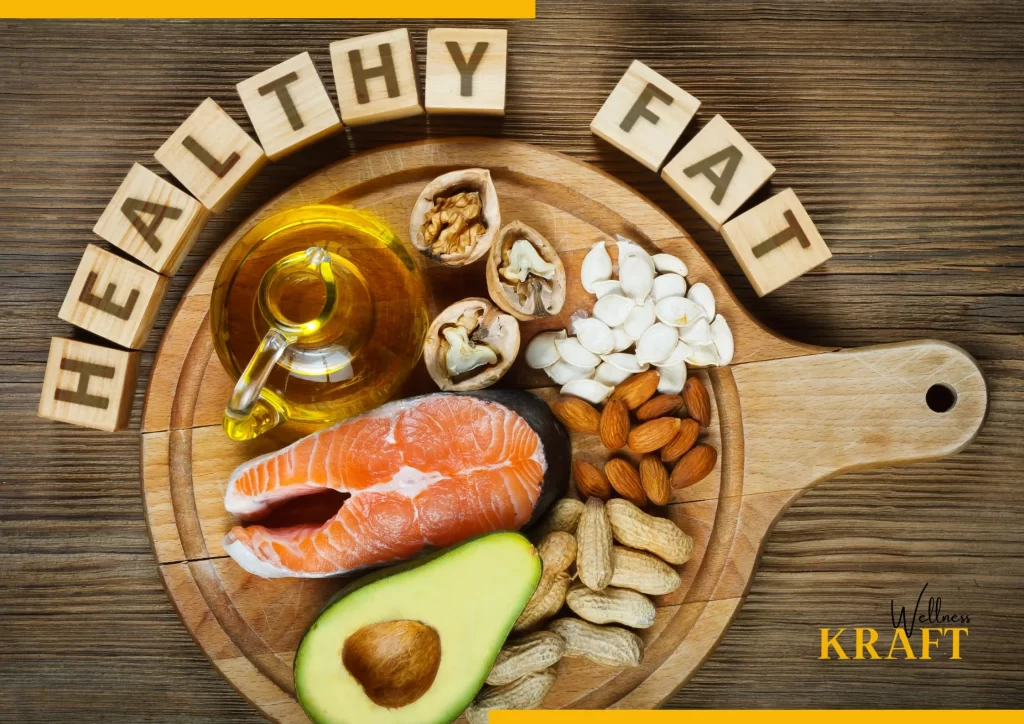
Fats are often linked to gaining weight and having less energy, but they are an important macronutrient that can keep you going during workouts. But not all fats are the same, and some fats are better at giving you energy than others.
Healthy fats like monounsaturated and polyunsaturated fats are great for getting long-lasting energy for working out. You can find these kinds of fats in food like nuts, seeds, avocado, and fatty fish like salmon.
On the other hand, you should avoid or eat less trans fats and heavy fats. These kinds of fats are found in food that have been cooked or fried, like chips, cookies, and fast food.
If you eat healthy fats before a run, you’ll have more energy and your muscles won’t break down as much. But you should only eat fats in small amounts because they have more calories than carbs and protein.
Adding healthy fats to meals and snacks throughout the day can also help you keep up your energy and give you the fuel you need for your workouts. For example, putting avocado on a sandwich or nuts in a salad can give you long-lasting energy and improve your diet as a whole.
Other Food and Drinks That Gives You Energy
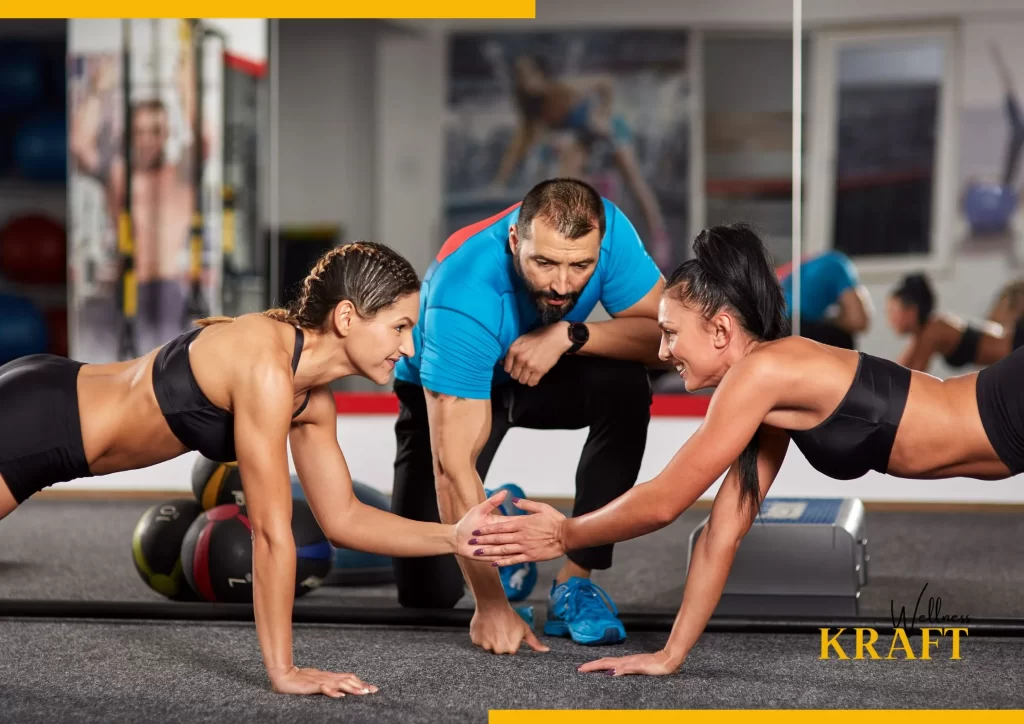
Apart from carbs, proteins, and fats, there are other food and drinks that can keep you going during your workouts.
Fruits like bananas and apples are great sources of carbs and can keep you going for a long time during a workout. Bananas also have a lot of potassium, which can help keep muscles from cramping and making you tired when you work out.
Whole grains like brown rice and whole-wheat bread are also good sources of energy that last for a long time. These food are processed more slowly than refined grains, so they give you a steady supply of energy while you work out.
Caffeine is a natural booster that can give you more energy and help you concentrate better while working out. Caffeine is often found in coffee and tea, and energy drinks can also give you a quick boost of energy. But it’s important to drink caffeine in balance, since too much of it can cause bad side effects like jitteriness and a faster heartbeat.
Water is also important for keeping up your energy during workouts. It’s important to stay hydrated before, during, and after exercise to keep your energy up and your athletic ability at its best. Sports drinks can also be a good way to stay hydrated and get extra nutrients like salts.
Timing Your Meals for Optimal Energy

When you eat can have a big impact on how much energy you have for your workouts. Before working out, it’s important to eat a well-balanced meal with carbs, proteins, fats, and other food and drinks that give you energy. But it’s also important to eat at the right times to make sure you have enough energy for your workout.
Eating a big meal right before a workout can make you feel uncomfortable and hurt your performance. It’s best to eat a meal with carbs, proteins, and fats at least two to three hours before you work out to give your body time to digest.
If you like to work out in the morning, a small meal or lunch with carbs and protein can give you energy and keep your muscles from breaking down while you work out. A banana with almond butter or a Greek yogurt with granola are both good examples of snacks to eat before a workout.
During exercise, it’s important to keep your energy up by eating or drinking small amounts of carbs, like sports drinks, snacks, or fruit. These carbohydrate sources can give you quick energy and help keep you from getting tired during long workouts.
It’s important to eat a food with carbs and protein about 30 to 60 minutes to an hour after working out. This can give you more energy and help your muscles heal. You could have a protein shake with fruit or grilled chicken with sweet potatoes after a run.
Meals to Eat Before a Workout
Eating a well-balanced meal before a workout can help give you energy that lasts and keep your muscles from breaking down. Here are some ideas for what to eat before a run to give you energy:
1. Oatmeal with fruit and nuts:
Oatmeal is a great source of carbs and fiber, and fruit and nuts add more minerals and healthy fats.
2. Grilled chicken with sweet potato and veggies:
This meal has a good mix of carbs, proteins, and fats, and the vegetables add important vitamins and minerals.
3. Whole wheat toast with avocado and egg:
Avocado and egg are both great sources of healthy fats and protein, and whole wheat toast gives you carbs and fiber.
4. Greek yogurt with berries and granola:
Greek yogurt is high in protein and has probiotics that are good for the health of your gut. Berries and granola add more carbs and nutrients.
5. Tuna salad with whole wheat crackers:
Tuna is high in protein and omega-3 fatty acids, and whole wheat crackers are high in calories and fiber.
It’s important to keep in mind that everyone has different food needs, and what works for one person might not work for another. Try out different meals and pay attention to how your body feels when you’re working out to find out what works best for you.
In addition to eating before a workout, it’s important to drink plenty of water before and during the workout. During a run, drinking water and sports drinks can help keep you hydrated and keep you from getting tired or cramping.
Meals to Eat after Workout
It’s important to refuel with a meal that has carbs and protein after a workout to help your muscles heal and get your energy back. Here are some ideas for meals you can eat after a workout to help your body recover:
1. Grilled salmon with quinoa and roasted veggies:
Salmon is high in protein and omega-3 fatty acids, while quinoa and roasted vegetables provide carbs and important vitamins and minerals.
2. Protein smoothie with fruit and nut butter:
A protein smoothie can be made quickly and easily with whey or plant-based protein powder, fruit, and nut butter.
3. Whole wheat wrap with turkey, avocado, and vegetables:
This wrap has a good mix of carbs, protein, and healthy fats, and the vegetables add important vitamins and minerals.
4. Baked sweet potato with black beans and salsa:
Sweet potatoes are high in carbs and fiber, and black beans are high in protein and other important nutrients. Salsa adds flavor and extra nutrients.
5. Stir-fried chicken and vegetables with brown rice:
This meal has a good balance of carbs, protein, and important nutrients from the vegetables, as well as fiber from the brown rice.
It’s important to eat a meal 30 minutes to an hour after working out to help your muscles heal and get your energy back. Don’t forget to keep drinking water and sports drinks to make up for the fluids you lose while exercising.
As with pre-workout food, everyone has different nutritional needs, and what works for one person might not work for another. Find out what works best for you by trying out different meals and paying attention to how your body feels after workouts.
Hydration for Energy
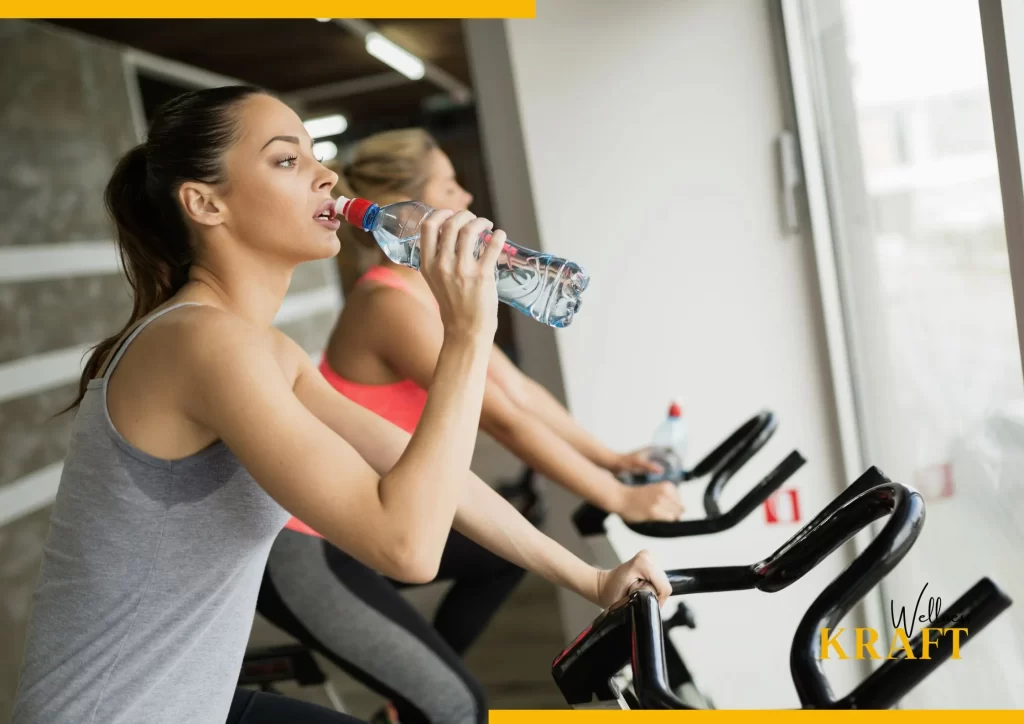
Keeping yourself hydrated is important for keeping up your energy during workouts. When you’re not drinking enough water, your body has to work harder to keep its temperature stable, which can make you tired. Here are some ways to stay hydrated while working out:
1. Drink water before, during, and after you work out:
You need to recover fluids lost through sweat by drinking water before, during, and after you work out.
2. Consider sports drinks for workouts that last more than an hour:
During workouts that last more than an hour, you might want to drink a sports drink with electrolytes to replace the salt and other minerals you lose through sweat.
3. Check the color of your pee:
The color of your urine is a good way to tell how well hydrated you are. A pale yellow color means that the skin is well-hydrated.
Supplements for Energy
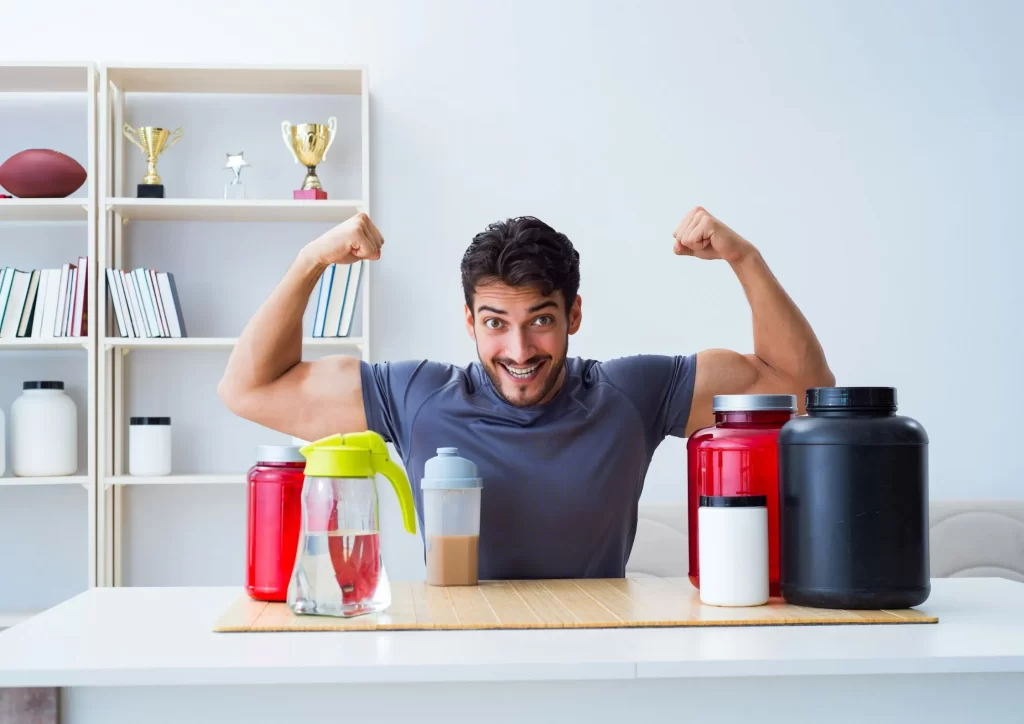
Even though whole food should be the main source of nutrients, some pills can give you more energy to work out. Here are some supplements that might help give you more energy:
1. Caffeine:
Caffeine is a stimulant that can make you more alert and help you feel less tired when you work out. It’s important to watch how much coffee you take in, since too much can cause bad side effects.
2. Creatine:
Creatine is a naturally occurring substance that helps muscles work better and gives you more energy when you work out hard.
3. Beta-alanine:
Beta-alanine is an amino acid that can help you work out harder and for longer by giving your muscles more energy.
4. Iron:
Iron is an important nutrient that helps the body make energy. Low iron levels can make you tired and make it harder for you to work out, so it’s important to get enough iron from whole food or vitamins.
It’s important to keep in mind that supplements shouldn’t be your only source of nutrients, and you should talk to a doctor before taking any supplements to make sure they are safe and right for your needs.
Concluding Thoughts
In conclusion, eating well and staying hydrated are important for having enough energy during workouts. By eating the right macronutrients—carbohydrates, proteins, and fats—staying hydrated, and maybe even taking some supplements, you can give your body the fuel it needs to work out better. Also, making sure you eat at the right times can help you keep your energy up during your workout.
As stated in the Wellness Kraft article it’s important to focus on nutrient-dense whole food like fruits, vegetables, lean proteins, and healthy fats. By picking these food and avoiding those that are processed, high in sugar, or high in fat, you can make sure your body gets the nutrients it needs for maximum energy.
Remember that eating a healthy, varied diet with lots of whole food is the best way to give your body the energy it needs for workouts. You can reach your exercise goals and do your best if you eat and drink the right things.
Key Takeaways
To sum up, here are some of the most important things you should know about eating for energy during workouts:
1. Carbohydrates, proteins, and fats, which are called macronutrients, are very important for giving you energy to work out.
2. Choosing the right carbs, like whole grains and veggies, can help keep your energy up during a workout.
3. Lean protein sources, like chicken, fish, and tofu, can help your muscles heal and give you energy for your workouts.
4. Healthy fats, like those in nuts, seeds, and avocado, can also keep you going for a long time.
5. Getting enough water is important for keeping up your energy during a workout.
6. Supplements like caffeine, creatine, and beta-alanine might give you more energy and help you do better in your workouts.
7. Getting the most out of your energy can also be helped by when you eat and snack before and after your workouts.
8. Overall, it’s important to focus on whole food that are high in nutrients and stay away from processed and sugary food.
By using these tips in your food and workouts, you can get the most out of your energy and reach your fitness goals.
FAQs
1. What should I eat before I go to the gym to give me more energy?
A meal or snack that is well-balanced and has carbs, protein, and healthy fats can help give you more energy before a workout. A fruit smoothie with protein powder, a turkey sandwich on whole grain bread, or Greek yogurt with berries and nuts are all good options.
2. Should you eat before or after working out?
A: Both are important, but time is the most important thing. Before a workout, eating a meal or snack can give you energy, and eating after a workout can help your muscles heal and fill up your glycogen stores. A meal or snack should be eaten 1–3 hours before a workout, and a meal or snack should be eaten 30–60 minutes after a workout.
3. Can drinking water give you more energy when you work out?
A: Yes, staying hydrated is important if you want to keep up your energy during a run. Drink water before, during, and after exercise to avoid getting tired and dehydrated.
4. Is there a drug that can help give me more energy while I’m working out?
A: Some drugs, like caffeine, creatine, and beta-alanine, may give you more energy and help you do better in your workouts. But before taking any vitamins, it’s important to talk to a doctor or nurse.
5. What are some good food sources that will give you energy while you work out?
A: Whole grains, fruits, veggies, and legumes are all good places to get carbs for energy during a workout.
6. What are some good places to get protein to give you energy when you’re working out?
A: Lean meats, fish, chicken, tofu, and legumes are all good sources of protein that can give you energy while you work out.
7. Can eating too close to a workout cause stomach problems and lower your energy?
A: Yes, eating too close to a workout can make your stomach hurt and make you feel less energetic. Eat a meal or snack at least one to three hours before you work out.
8. Should I skip any food before a workout?
A: It’s best to stay away from high-fat and high-fiber food before a workout because they can make you feel sick and lower your energy. Also, stay away from sugary and processed food because they can cause your blood sugar to rise quickly and then drop quickly.
9. How can I make sure I drink enough water while I’m working out?
A: Before, during, and after exercise, drink water to keep from getting dehydrated. Aim to drink at least 8–10 glasses of water every day to stay healthy.
10. Can having a balanced diet give me more energy all day, not just when I’m working out?
A: Eating a healthy diet with lots of whole food can give you more energy all day, not just when you’re working out. Focus on food that are high in nutrients, like fruits, veggies, lean proteins, and healthy fats. Stay away from processed and sugary food.
